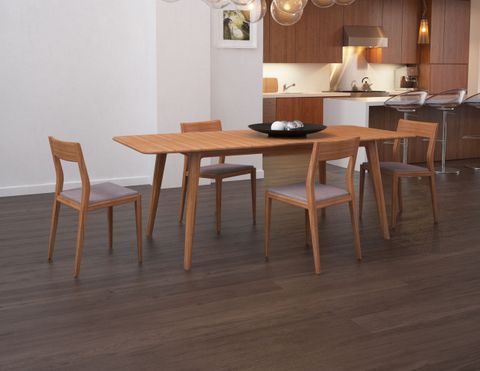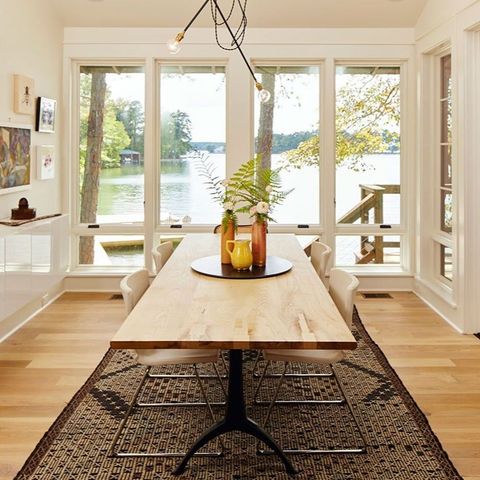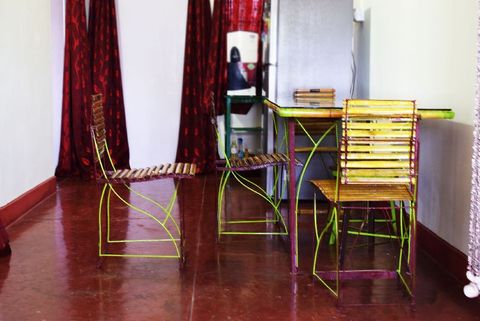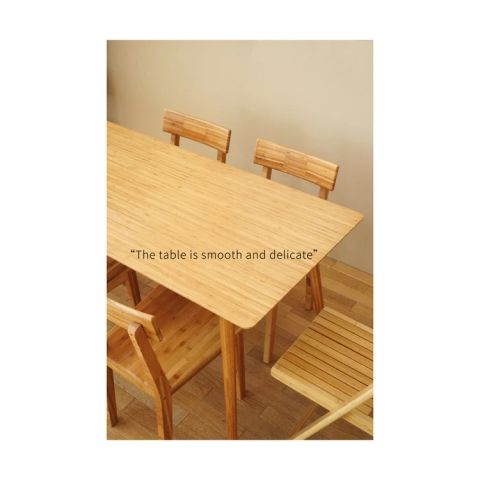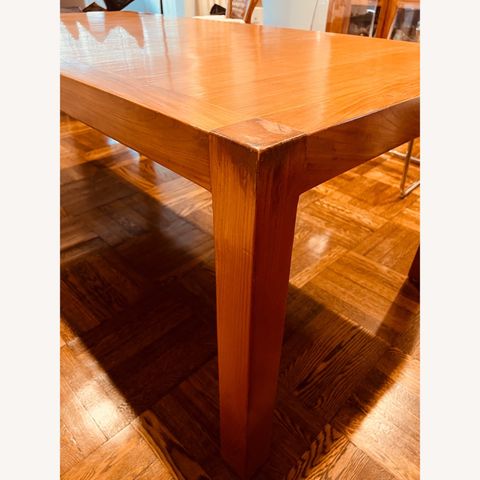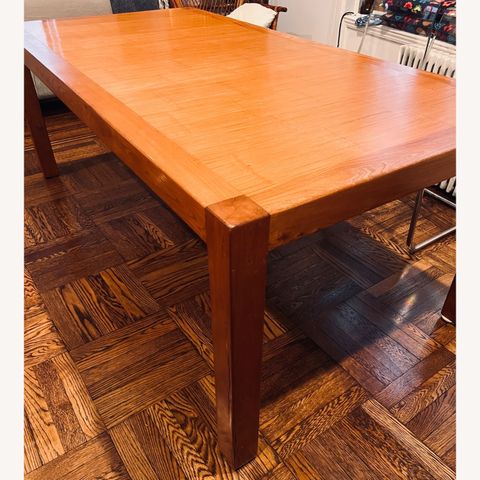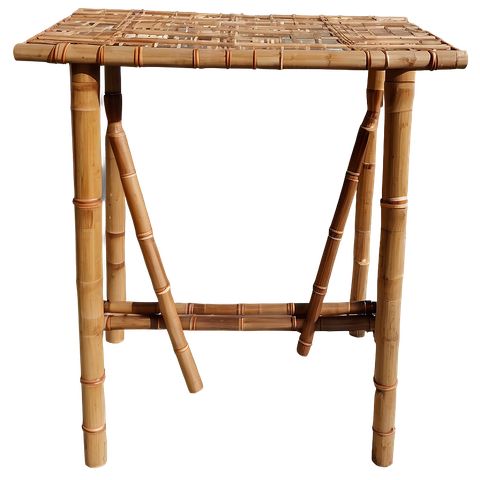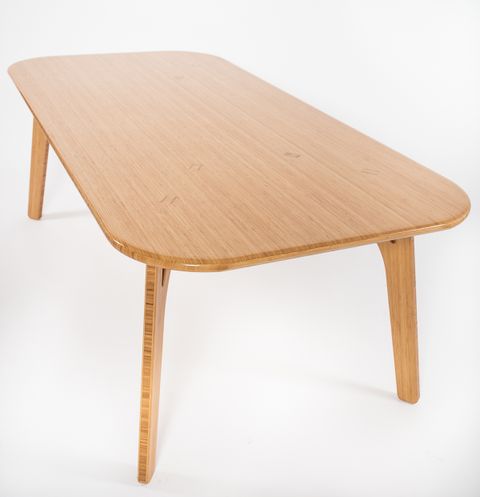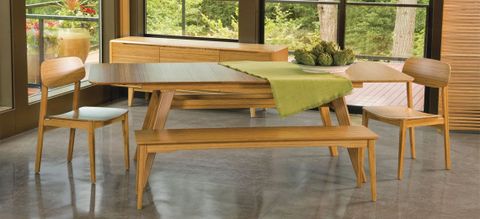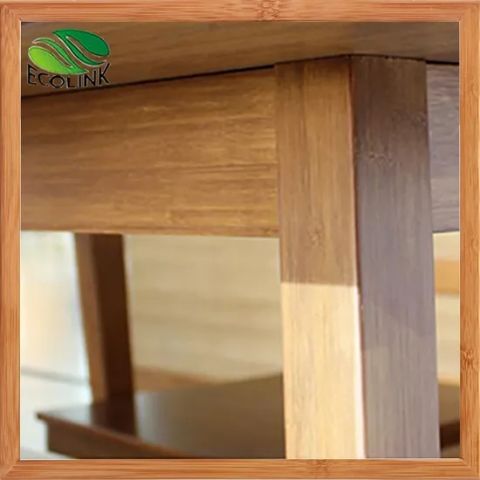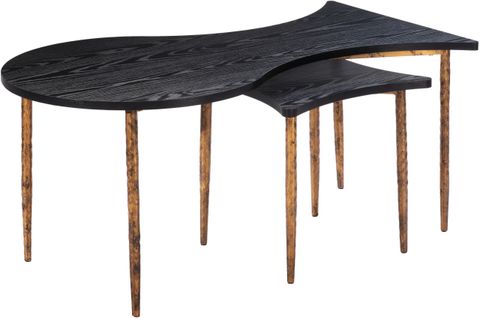Picture this: You’re shopping for a new dining table. The choices seem endless – oak, maple, cherry, or maybe that beautiful reclaimed wood option. But what if I told you there’s a smarter, greener choice that’s gaining popularity in kitchens and living rooms across the country? It’s not just about aesthetics anymore. The environmental impact of our furniture choices matters more than we think.
When you sit down to dinner, do you ever think about where that table came from? The story behind your dining room furniture might surprise you. Traditional wood tables have dominated homes for centuries, but they come with a hidden cost to our environment. In contrast, bamboo tables offer a compelling alternative that’s not just stylish, but also sustainable. This isn’t just another eco-trend – it’s a fundamental shift in how we think about the materials we bring into our homes. Let’s explore why bamboo might be the better choice for both your family and the planet.
Bamboo: Nature’s Fastest Growing Wonder
Bamboo isn’t actually a tree – it’s a grass. That simple fact changes everything when you consider its growth rate. While traditional hardwoods take decades to mature, bamboo can grow up to 3 feet in a single day. Imagine that! Some species of bamboo can reach full maturity in just three to five years, compared to the 15 to 30 years it takes for most hardwood trees. This rapid growth means less time waiting for resources and more opportunity to replenish forests quickly.
Consider this: a single bamboo plant can produce new shoots within 48 hours after being harvested. This is like having a renewable garden that never stops producing. The root system remains intact, continuing to grow new culms without replanting. It’s nature’s way of saying ‘renewable’ with a capital R.
What makes this even more impressive is that bamboo requires minimal water and no pesticides to thrive. It’s essentially self-sustaining in many environments, unlike traditional timber harvesting which often involves clearing large forest areas and using harmful chemicals.
Carbon Footprint Comparison
The carbon footprint of your furniture tells a powerful story about environmental impact. When we talk about carbon footprints, we’re looking at how much greenhouse gas is produced during manufacturing, transportation, and disposal. Traditional wood tables often involve long supply chains, with trees transported across continents before reaching your local furniture store.
Bamboo tables, however, typically have a much smaller carbon footprint. Because bamboo grows so rapidly, it absorbs massive amounts of carbon dioxide from the atmosphere. A mature bamboo forest can absorb up to 12 tons of CO2 per hectare annually, compared to about 3 tons for typical hardwood forests. That’s significant when you consider that a single dining table made from bamboo might require fewer resources and generate less emissions than its wood counterpart.
Think about the journey from forest to table. Traditional hardwoods often travel thousands of miles, requiring fuel-intensive shipping methods. Bamboo, especially when sourced locally, can dramatically reduce transportation-related emissions. Plus, bamboo’s natural properties mean less processing is needed, further cutting down on energy consumption and carbon output.
Sustainable Harvesting Practices
Traditional forestry practices often involve clear-cutting entire sections of woodland, disturbing ecosystems and displacing wildlife. The process can take decades for forests to recover fully. In contrast, bamboo harvesting is remarkably sustainable and even beneficial to the ecosystem.
Bamboo plants are typically cut at maturity rather than felled entirely. The root system survives and continues producing new culms, essentially creating a continuous harvest cycle. This method doesn’t damage the soil structure or disrupt wildlife habitats. In fact, bamboo forests often provide better habitat conditions for various animals than cleared land would.
The harvesting process itself is relatively gentle. Workers simply cut the mature culms at ground level, leaving the root system untouched. This approach supports biodiversity and helps maintain the ecological balance. Many bamboo farms operate as carbon-negative businesses, meaning they remove more carbon from the atmosphere than they emit during production.
Additionally, bamboo’s natural resistance to pests and diseases means fewer chemical treatments are required. This creates a cleaner environment for workers and reduces contamination of soil and water sources.
Durability and Longevity Considerations
One common concern with bamboo furniture is whether it’s actually as durable as traditional wood tables. The answer is yes, and here’s why. Modern bamboo table construction uses advanced techniques that enhance strength and longevity. Bamboo fibers are actually stronger than steel on a weight-for-weight basis, making it incredibly resilient.
When properly treated and finished, bamboo tables can last for decades. The material resists scratches, dents, and moisture better than many hardwoods. Some manufacturers use specialized treatments that make bamboo virtually maintenance-free while maintaining its natural beauty. The tight grain structure of bamboo also prevents warping and cracking that can occur with traditional wood.
Many bamboo tables are designed with the same attention to detail as premium wooden tables. They feature reinforced joints, protective coatings, and finishes that ensure long-term performance. Quality bamboo furniture often comes with warranties that rival those of traditional wood products. In some cases, bamboo tables even outlast their hardwood counterparts due to superior material properties.
The longevity factor is crucial because it means fewer replacements, reducing overall environmental impact. If you invest in a quality bamboo table, you’re making a choice that benefits both your home and the planet for years to come.
Economic and Social Benefits
The environmental advantages of bamboo extend beyond the planet to support communities worldwide. Bamboo cultivation provides economic opportunities for rural populations in Asia, Africa, and Latin America. These regions have been growing bamboo for generations, but modern markets have created new income streams for farmers and artisans.
Bamboo farming requires minimal investment in equipment and infrastructure. Unlike traditional timber operations, which need heavy machinery and extensive processing facilities, bamboo can be harvested and processed with relatively simple tools. This makes it accessible to small-scale producers and cooperatives.
The social impact is equally important. Many bamboo cooperatives focus on fair labor practices and community development. Workers receive fair wages, and the industry often supports education and healthcare initiatives in rural areas. This creates positive ripple effects that extend far beyond the furniture market.
From a consumer perspective, bamboo tables often offer excellent value for money. While initial costs may be similar to traditional wood, the durability and low maintenance requirements mean you won’t need to replace them frequently. This makes bamboo a smart financial decision as well as an environmentally responsible one.
Challenges and Considerations
No choice is perfect, and bamboo tables aren’t without their limitations. One major challenge is the availability of high-quality bamboo products. The market is still developing, and not all bamboo furniture meets the same standards. Some products may use lower-grade bamboo or inappropriate treatments that compromise durability.
Another consideration is the finishing process. While bamboo itself is naturally beautiful, some manufacturers use chemical treatments that may not align with eco-conscious values. It’s important to research the specific processes used in bamboo production.
The global market for bamboo furniture is still evolving, which means sourcing options can vary significantly by location. Some areas may have limited access to quality bamboo products, making traditional wood more convenient despite environmental concerns.
Additionally, while bamboo grows quickly, it does require specific climate conditions to thrive. This can limit production in certain regions and potentially affect supply chain stability. However, ongoing research and development continue to expand suitable growing areas for bamboo cultivation.
Choosing bamboo over traditional wood for your dining table represents more than just a design preference – it’s a conscious decision to support sustainable practices and reduce environmental impact. From its incredible growth rate to its carbon-negative properties, bamboo offers compelling advantages that traditional wood simply cannot match.
While there are challenges to consider, such as product quality variations and market availability, the overall picture is clear. Bamboo tables provide durability, aesthetic appeal, and environmental benefits that make them a wise investment for environmentally conscious consumers.
The next time you’re considering a new table, remember that every choice matters. Whether you’re drawn to bamboo’s natural beauty or its environmental credentials, you’re making a statement about what kind of future you want to support. Bamboo tables offer a path forward that honors both your home and the planet that sustains us all. The question isn’t whether you can afford to make this choice – it’s whether you can afford not to.

